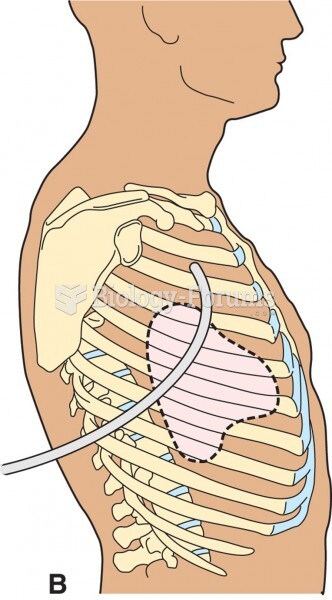|
|
|
According to the CDC, approximately 31.7% of the U.S. population has high low-density lipoprotein (LDL) or "bad cholesterol" levels.
The average older adult in the United States takes five prescription drugs per day. Half of these drugs contain a sedative. Alcohol should therefore be avoided by most senior citizens because of the dangerous interactions between alcohol and sedatives.
Patients who cannot swallow may receive nutrition via a parenteral route—usually, a catheter is inserted through the chest into a large vein going into the heart.
Approximately 25% of all reported medication errors result from some kind of name confusion.
Pope Sylvester II tried to introduce Arabic numbers into Europe between the years 999 and 1003, but their use did not catch on for a few more centuries, and Roman numerals continued to be the primary number system.
 Phlebotomy. In this common procedure, a syringe needle punctures a vein, usually in the arm, and wit
Phlebotomy. In this common procedure, a syringe needle punctures a vein, usually in the arm, and wit
 Most air filter housings are located on the side of the engine compartment and use flexible rubber ...
Most air filter housings are located on the side of the engine compartment and use flexible rubber ...





